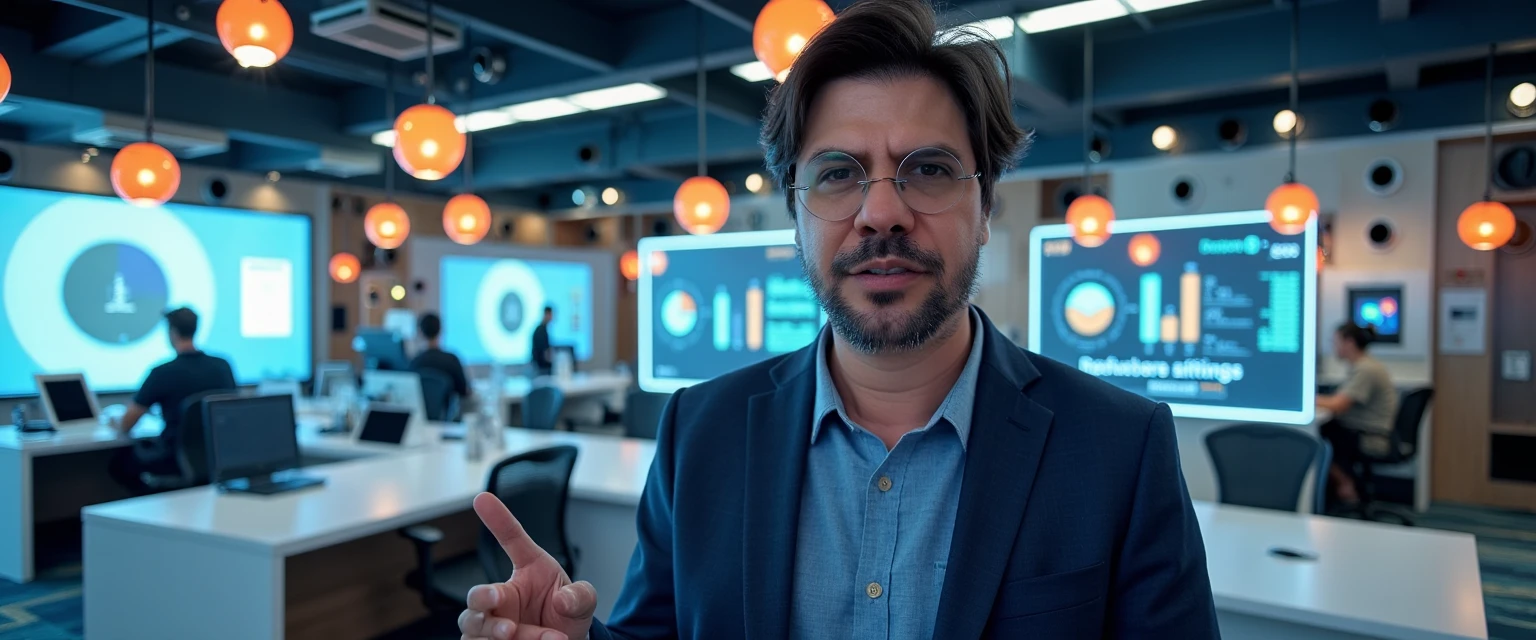AI Revolution in 2024: From ChatGPT to Digital Cloning – Where Are We Going?
December 1, 2024 | by Matos AI

In recent days, a veritable avalanche of news about Artificial Intelligence (AI) has shown how this technology is evolving at an impressive speed and changing the global scenario. Let's analyze what is happening and reflect on the challenges and opportunities that arise.
In just two years since its launch, ChatGPT has radically transformed our relationship with AI, reaching an astonishing 200 million weekly users. As someone who has closely followed technological developments for years, I must admit that even I was impressed by the speed of this adoption.
In my experience working with startups and innovation, I have rarely seen a technology make such an impact in such a short space of time. And the most interesting thing is that we are just getting started. Let’s take a look at the main trends that are emerging:
Join my WhatsApp groups! Daily updates with the most relevant news in the AI world and a vibrant community!
- AI for Business: focused on business and strategy.
- AI Builders: with a more technical and hands-on approach.
1. Digital Cloning and Personalization
One of the most fascinating findings comes from a joint study by Stanford University, Washington University, and Google DeepMind. The researchers demonstrated that AI can already replicate human personalities with 85% accuracy. As an educator and entrepreneur, I see enormous potential for applications in training and product development, but also many risks that we need to address as a society.
2. AI in Corporations
Google has launched Vertex AI, a platform that democratizes access to AI for companies of all sizes. In my experience with corporate innovation, I realize that tools like these are essential for small and medium-sized companies to not fall behind in the digital transformation.
3. Safety Critical Applications
It’s amazing how AI is making its way into highly regulated industries. Heathrow Airport is trialling AI in air traffic control, and the UK Civil Aviation Authority is already developing frameworks to regulate such applications. This reminds me a lot of the challenges we faced in developing the Startup Framework – it’s crucial to create regulations that protect society without stifling innovation.
4. Global Competition
China has just launched DeepSeek-R1, an AI model capable of “autonomous reasoning.” This highlights how the race for AI leadership is intensifying globally.
Reflections and Challenges
As someone who has worked in technology education for years, I see that we urgently need:
- Develop robust ethical frameworks for AI use
- Investing in digital literacy and critical thinking
- Create governance mechanisms that protect individual rights
- Ensure that technological evolution is inclusive and accessible
McKinsey projects that generative AI could add up to $4.4 trillion to the global economy annually. But the real challenge isn’t just economic—it’s social and ethical. As a society, we need to be prepared to address issues like privacy, algorithmic biases, and the impact on the job market.
What to do now?
In my view, based on experience developing technology education programs, I suggest:
- Invest in continuous training – technology will not stop evolving
- Stay informed about the latest trends and their impacts
- Actively participate in discussions on AI regulation and ethics
- Seek to understand how AI can be applied responsibly in your sector
The future of AI is being written now, and we all have a key role to play in that story. The technology is a powerful tool, but its ultimate impact will depend on how we choose to use it.
✨Did you like it? You can sign up to receive 10K Digital's newsletters in your email, curated by me, with the best content about AI and business.
➡️ Join the 10K Community here
RELATED POSTS
View all



